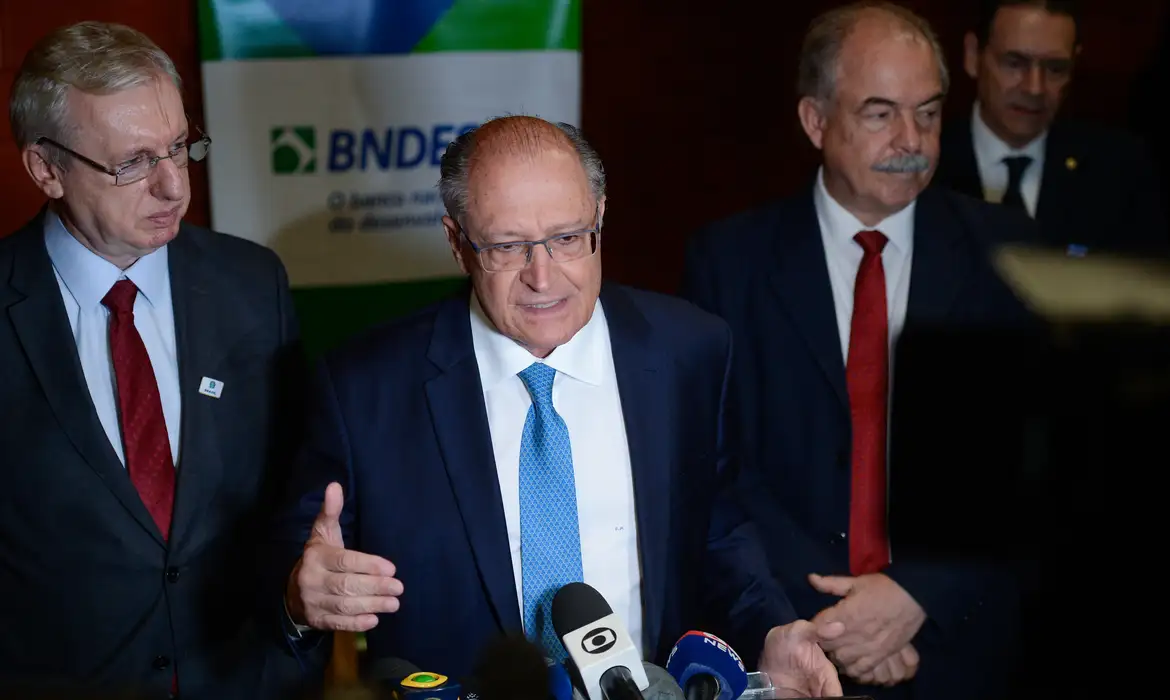
Vice President of the Republic, Geraldo AlckminTomaz Silva/Agência Brasil
Published 04/25/2024 17:05
The statement was made after participating in the opening of an event on strengthening the industry. Alckmin defended the reform, stating that the legislation approved by parliament last year will “completely relieve investment and exports”.
“The reform reduces the cost of paying taxes. What you can’t do is have too many frills. We need to be careful in the regulations so as not to have too many exceptions, so that we (can) focus a lot on VAT (Value Added Tax), a big leap in quality because it will not be cumulative”, he observed.
The Minister of Finance, Fernando Haddad, delivered the tax reform regulation proposal to the presidents of the Chamber of Deputies, Arthur Lira (PP-AL), and of the Senate, Rodrigo Pacheco (PSD-MG), this Wednesday (24) .
The government’s economic team predicts an average VAT rate of 26.5%. But there is concern that parliamentarians will create exceptions for some sectors, such as goods and services, which would benefit from lower taxes. The counterpart would be compensation that burdens other products. Currently, Brazilian goods and services pay, on average, 34% in federal, state and municipal taxes.
Industrialization
During the meeting, BNDES launched an online platform that gathers information about loans granted under the Mais Produção Plan, the financing arm of Nova Indústria Brasil (NIB), an industrial policy launched by the government in January.
According to the panel, since then, BNDES has approved R$96.9 billion in financing, with R$69.6 billion having been released by the end of March. “There is no development without credit,” said Alckmin.
The vice-president and minister praised the BNDES initiative. “Transparency is synonymous with efficiency. The more transparent there is, the more efficiency there is,” he noted.
Next, he listed government measures to stimulate the sector and spoke about the importance of the industry for the country’s economy. “The one that improves income the most is the industry. Industry and civil construction are champions in terms of employment and income”, he assured.
Alckmin celebrated investment data from the automobile industry. “The automotive sector closed yesterday R$ 129.6 billion in investment already confirmed by all automakers, practically, in Brazil. We will have another 5% of this, close to R$6.5 billion in the auto parts industry”, he detailed.
Financing
“Credit approvals grew 92%, it is extraordinary growth (compared to the same period in 2023)”, he stated. He added that default, that is, failure to receive funds lent by the bank, is less than 0.01%.
Mercadante argued that just as the United States, the European Union and China pursue industrial policy with government subsidies and financing, Brazil should follow the same path. According to him, the BNDES has already approved, by April, R$100 billion of the R$250 billion foreseen by Nova Indústria Brasil until 2026. And he said: “R$250 billion is not enough. Brazil can do more, the industry can do more,” he declared.
Alckmin and Mercadante expressed interest in the National Congress more quickly approving the bill that creates the Development Credit Letter (LCD), which plans to reinforce the financing capacity for investments by R$10 billion per year.
LCDs would be a way for development banks to raise funds. In short, people and companies could buy LCDs and receive income paid by borrowers. One attraction is that these income would be exempt from income tax for individuals and a 15% rate for companies, as is the case for letters of credit for agriculture (LCA) and the real estate sector (LCI). The LCD bill is in the Chamber and is being processed urgently.
Cooperation agreement
(It is) “a partnership to have a complementary and non-competing competence, to speed up releases, with each person dedicating themselves to their specialty, that which has the best conditions for evaluation. So we can boost resources for innovation even faster”, assured Mercadante.
The president of the Financier of Studies and Projects (Finep), Celso Pansera, highlighted the growth in demand for financing innovation.
“In the four years of the previous government, Finep lent around R$5 billion, while last year we lent R$5.7 billion in a single year. The demand in the area of innovation is strong and we will continue to work hard”, he guaranteed.
